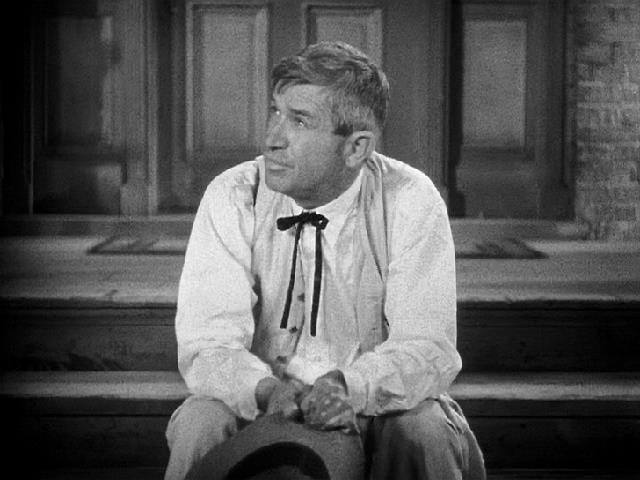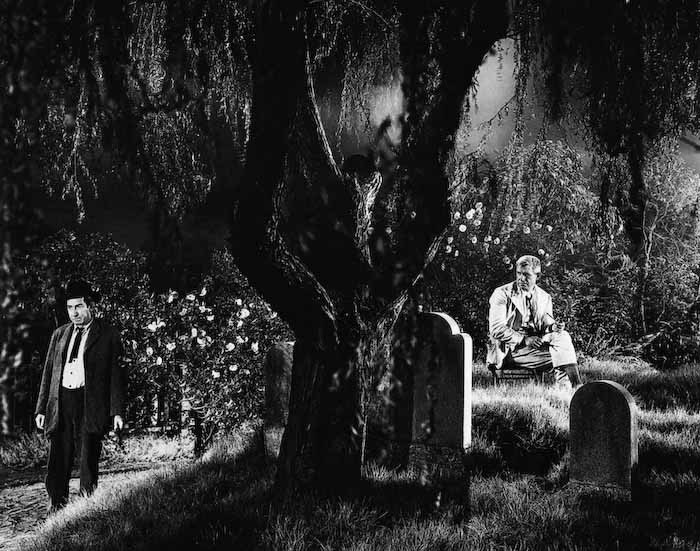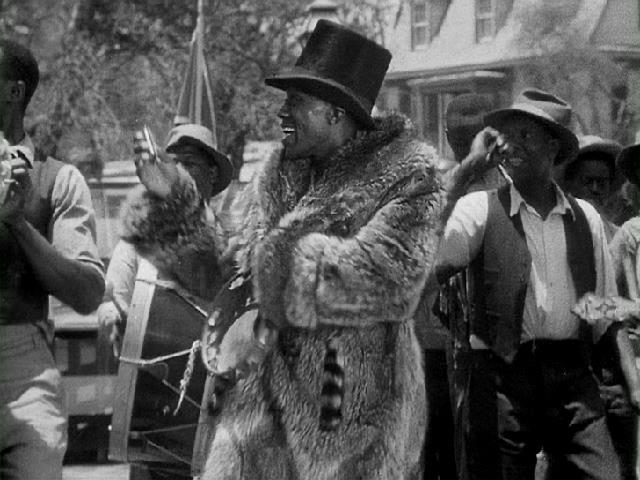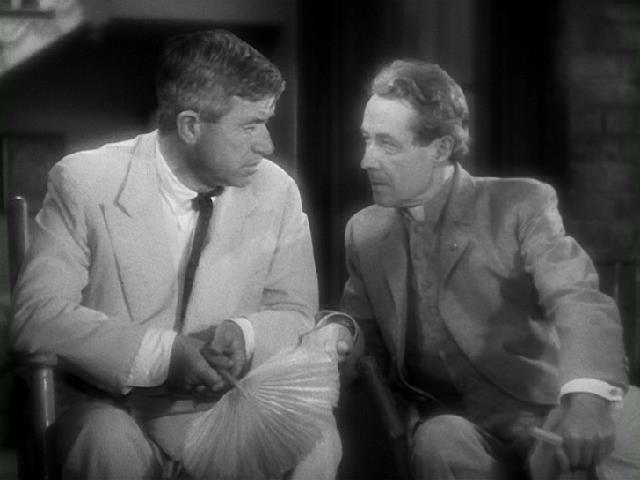While it’s unlikely that more people have seen Judge Priest (1934) than any other John Ford film, chances are it’s the best known Will Rogers movie. This has nothing to do with popularity and everything to do with the fact that the film fell into the public domain years ago, meaning it became a staple of TV because it cost stations nothing to show it. (This is also how Frank Capra’s 1946 box office flop It’s a Wonderful Life became entrenched as a holiday favorite.) Now, it’s widely available online. The downside to this is that the prints available are often pretty poor. Even the Fox copy — easily the best of the lot — could stand serious restoration, but that’s not likely to happen with a film that nobody actually owns. It’s too bad, too, because the film contains some of Ford’s richest images from the period when the influence from F.W. Murnau’s Sunrise (1927) was at its greatest — as can be seen from the studio still above. As it stands, however, it is still an essential John Ford film — in part for reasons that do not directly relate to it.
The film is a piece of nostalgic Americana — for a time, a place, and a feeling that wasn’t long gone in 1934, but is today. This is both its greatness and its curse. The greatness is that it captures something we will never personally know in terms that are at once very foreign and yet not altogether unfamiliar. The curse is that what it is nostalgic for is a romanticized and sentimentalized vision of the last vestiges of the Confederacy in a pocket of the Old South years after the Civil War. No, I don’t mean that it presents any the “South shall rise again” folderol. It presents veterans of the losing side of the war as still proud of their days of service and clinging to those days. It is therefore a film that has to be judged in its era, not in ours. Oh, it’s not inflammatory like Griffith’s The Birth of a Nation (1915) — though it has deliberate ties to that film in the casting of Henry B. Walthall who had starred in Griffith’s film — and it’s not glossed over like Gone with the Wind (1939). In fact, the thrust of the film’s actual plot is directed at the hypocrisy and bigotry of the world it inhabits. Though Judge Priest (Rogers) is a staunch veteran of the war, he is also the progressive force in the town. In fact, the Jeff Poindexter character is as much his friend as his servant. (OK, so Priest at one point advises Jeff, “I already saved you from one lynching. If you play ‘Marching Through Georgia,’ there’s apt to be another — and I might join them.” But its hardly said seriously.)
I feel like I’ve just spent a paragraph apologizing for a film that really — as long as it’s looked at in its context — shouldn’t need an apology. Unfortunately, a lot of people seem to have trouble looking at things in context. This is not a mean-spirited film by any stretch of the imagination — even Stepin Fetchit’s comedy is not ill-intended. It was a staple of its era — as was the immensely popular Fetchit himself (note his special billing on the credits). Overall, this is a gentle, sweet-tempered comedy built around a slightly sad character, Judge Priest, who is determined to do the right thing whatever the cost might be to him personally.
Ford was so taken with this character — whose creator, Irvin S. Cobb, would appear in Steamboat Round the Bend — that he went back to him for his 1953 film The Sun Shines Bright, which Ford claimed as his favorite of all the films he made. Of course, by 1953 Rogers was long dead, so Charles Winninger (probably best known as Capt. Andy Hawks in James Whale’s 1936 Show Boat) stepped into the role. A good actor, but lacking Rogers’ specific appeal, Winninger made a somewhat different Judge Priest, but (in his last major role) Stepin Fetchit was back as Jeff Poindexter. (Here he gets to warn someone not to play “Marching Through Georgia,” evidencing a somewhat less oblivious character this round.) All in all, The Sun Shines Bright is a more somber film with a bittersweet ending that prefigures that of Ford’s The Searchers three years later. And, it probably is a better film, but Judge Priest is an important piece of the puzzle — and a fine work in its own right.
The Asheville Film Society will screen Judge Priest Tuesday, Nov. 25, at 8 p.m. in Theater Six at The Carolina Asheville and will be hosted by Xpress movie critics Ken Hanke and Justin Souther.








I preferred the sequel DOCTOR FIREMAN.
Somewhere an electric chair is waiting…